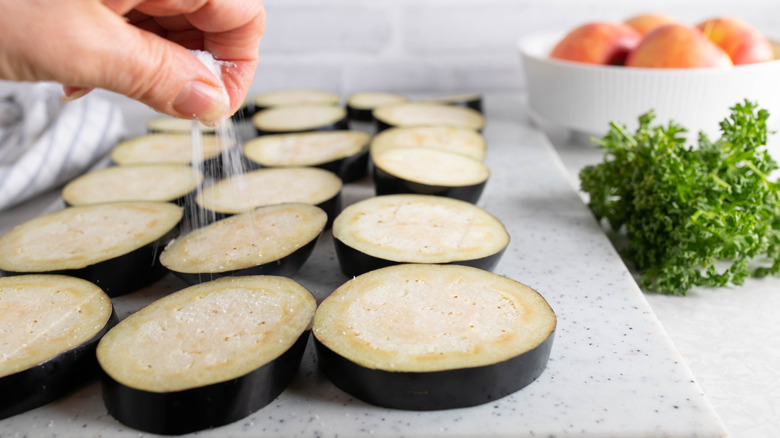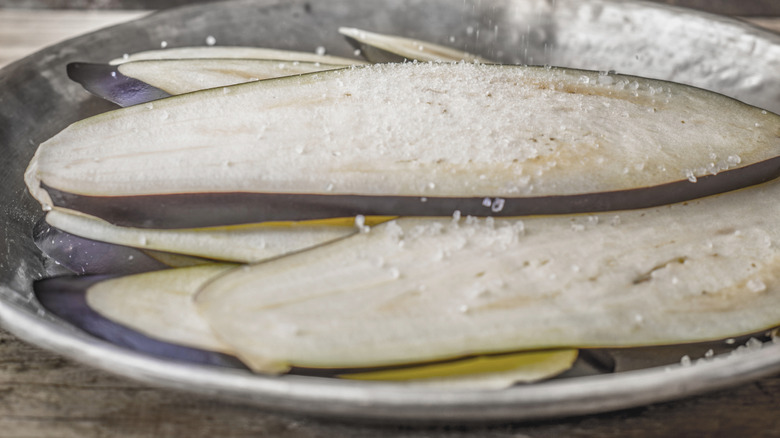Do You Always Need To Salt Eggplant Before Cooking? We Asked A Chef
Eggplants have a deliciously rich, savory, earthy flavor and a creamy, melt-in-your-mouth texture when cooked well. Many argue that salting eggplant is a key step to proper cooking, but is this salting step essential? We consulted eggplant-cooking expert Michael Costa, concept chef at Zaytinya by José Andrés in Washington D.C., which specializes in Turkish, Lebanese, and Greek dishes. All three of these cuisines utilize eggplants in iconic dishes like this Lebanese eggplant dip as well as Turkish stuffed-eggplant karniyarik and of course, Greek moussaka.
When asked if you should always salt eggplant before cooking, chef Costa said, "We [Zaytinya's kitchen staff] always do but it depends on the eggplant and the final result you are looking for. Eggplants are mostly water so salting them can help concentrate their flavor and texture."
Salting eggplant slices was once touted as the best way to rid them of bitter compounds through osmosis. While modern eggplants have been bred for a mild, less bitter taste, salting is still beneficial to flavor and texture as chef Costa states. The salt draws moisture out of the eggplant, enhancing its flavor and balancing any bitterness it may contain. Eggplant flesh will also absorb some of the salt, effectively pre-seasoning it. Furthermore, by drawing out excess water, salting facilitates a crispy browned surface and skin and a desirable creamy, tender interior, whether you're frying, roasting, or grilling eggplants.
How to salt eggplant
There are two main methods for salting eggplant: Dry brining and wet brining. To wet-brine eggplant, you'll create a saltwater bath to soak them. You can do this by dissolving a tablespoon of salt in a small portion of hot water, then topping the solution off with a few quarts of water. Cut your eggplant into chunks, rounds, or steaks before submerging them in the brine. A deep mixing bowl is ideal for the water bath so you can fit all of the eggplant inside without spilling any water. You will need to weigh the eggplant down to ensure it's fully submerged. After around 30 minutes, you can drain, rinse, and pat the eggplant dry before using it in your recipe.
For dry brining, lay the cut eggplant on a baking sheet, sprinkling a hefty amount of salt as evenly as possible over every slice. Let the salted eggplant sit for 30 minutes before rinsing off the salt and patting the pieces dry. Both methods are effective for guaranteeing the flavor concentration and textural upgrade that Michael Costa asserts. Even if you're using a variety of eggplant that lacks bitterness, salting will still improve its texture and taste.

